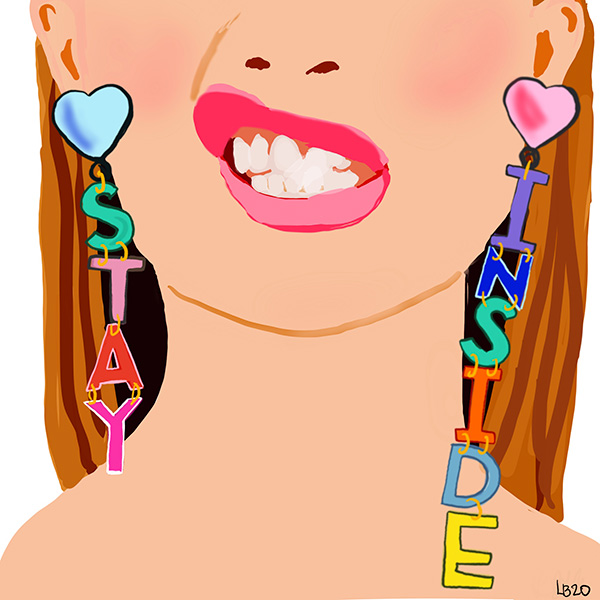
Just about everyone agrees that when the COVID-19 lockdown ends, the world will look different. But no one is sure what that new America will look like in the wake of an unprecedented public health and economic crisis.
For now, perhaps the best model is China, where COVID-19 was discovered, and where restrictions had mostly been lifted at press time in May. Early indications are that China is experiencing a surprisingly V-shaped economic recovery, with a sharp, quick upturn, especially in the luxury sector. After months of being cooped up, many consumers are engaging in what they call revenge shopping—a term originally used in China to describe the spending sprees that followed the liberalization of the economy.
“There has been a pent-up demand, and [consumers] are ready to treat themselves,” Jeff Unze, president of strategic partnerships at BorderX Lab, told The Business of Fashion. “I don’t know whether I would call it ‘revenge buying,’ but I would definitely call it ‘treat myself to something nice’ buying.”
Kent Wong, managing director of Chow Tai Fook, China’s largest jeweler, says that mall traffic has not yet returned to pre-virus levels, and sales are still down. Yet he’s heartened that consumer interest in jewelry remains strong, even if shoppers currently favor lower-priced items. “We assumed that it would take two to three months to recover,” he says. “I think in three or four months, we will be back to normal. The present data is better than we expected.”
Thomai Serdari, a professor of luxury marketing and branding at New York University’s Stern School of Business, also believes we’ll see a burst of pent-up demand. “The social distancing and deprivation are really intense,” he told Retail Dive. “We will all be craving a bit of entertainment, which is what shopping has always been.”
Diamond industry analyst Edahn Golan claims when you examine historical trends, the gem business tends to bounce back quickly following calamities. After 9/11, he notes, U.S. diamond demand grew by double digits.
“Following hard times that include a real threat to life, we tend to wake up from our hesitance, remember that life is short, and rush to bond,” Golan wrote in a recent blog post. “We will stop stalling and propose because we just came back from the brink and don’t want to lose any more time. We will have that baby because we will have a deeper desire to perpetuate our lives. And we will get that piece of jewelry that symbolizes that momentous point of our lives.”
While it’s certainly possible that this crisis will bring people together, it has driven others apart. Post-lockdown, China saw a spurt of divorces. At least one New York City divorce lawyer told the media he’s already seen a 50% jump in inquiries.
That could work out to the industry’s benefit, as more divorces mean more remarriages and more trade-ins—though it’s not likely something the industry wants to benefit from.
The lockdown has also made consumers more reliant than ever on technology, from shopping apps to tools like videoconferencing. “Some digital shopping habits built during the outbreak will stick—especially if brands raise their game in online assortment, user experience, and digital marketing,” said a recent report from Bain & Co.
In China, Wong says, videoconferencing has become the “new normal,” and even once-stubborn holdouts are embracing shopping apps. “The older people used to like to go to the market,” he says. “But now that they started using the apps when they couldn’t go out, use of mobile has become common, even with them. They see the convenience.”
Consumers will still go out and shop, of course, though there could be more caution than before. Here, as in certain parts of Asia, mask-wearing and even fever-screening might become compulsory before entering public areas. Consumers will pay more attention to whether stores are clean and sanitary. And businesses will face more pressure to offer paid sick leave and better health care to their personnel, particularly warehouse workers, kitchen staff, and delivery people—the low-level employees who have, almost overnight, become essential parts of our economy and in some cases literal lifesavers.
“We will be better able to see how our fates are linked,” NYU sociology professor Eric Klinenberg told Politico. “The cheap burger I eat from a restaurant that denies paid sick leave to its cashiers and kitchen staff makes me more vulnerable to illness.
“The coronavirus pandemic is going to cause immense pain and suffering,” Klinenberg added. “But it will force us to reconsider who we are and what we value, and, in the long run, it could help us rediscover the better version of ourselves.”
(Illustration by Lisa Bayer/@sketchnyc)